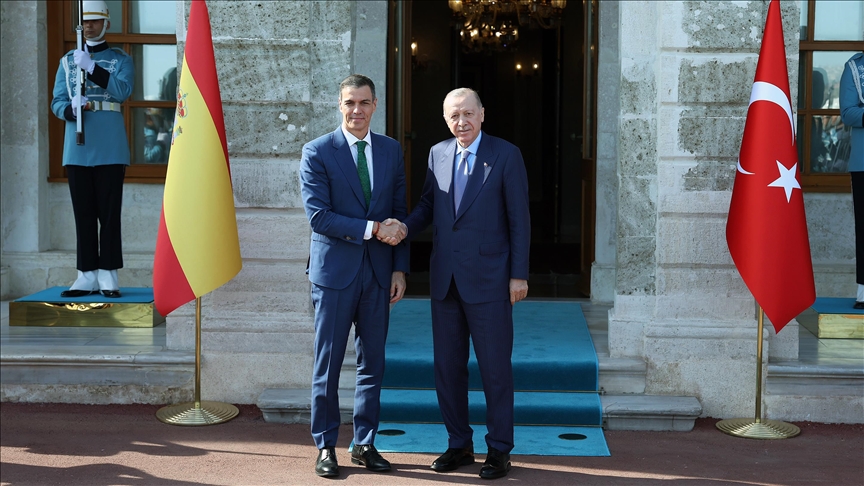Analysis | Erdogan Just Doomed Turkey’s EU Membership
“First come and open the way for Turkey in the EU; after that we’ll open the way for Sweden just like we did for Finland,” Erdogan told a press conference in Istanbul before leaving for NATO’s summit in Lithuania on Monday. He criticized “countries keeping Turkey waiting at the EU’s door for almost 50 years.”
NATO Secretary-General Jens Stoltenberg announced Monday evening on social media that accommodation had been reached with Ankara over Sweden’s membership — which will undoubtedly be welcomed in Brussels, Stockholm and Washington. But that won’t change things on the EU front: The European Commission has rejected Erdogan’s demand out of hand, pointing out that NATO membership and EU accession are two separate processes. If anything, he has given the EU yet another excuse to slow-roll Turkey’s application for membership, which has been pending for the best part of the two decades he has been at the helm in Ankara.
Having seen how Erdogan behaves in one exclusive club, the Europeans are hardly likely to welcome him to another.
The Turkish leader has a longstanding grudge against the Europeans for blackballing him. Turkey applied for membership long before he rose to power, and was declared eligible in 1999. But the rise of his Islamist party spooked members who were already leery of allowing a Muslim-majority nation into the fold.
There is strong suspicion in Turkey, encouraged by Erdogan and his AK Party, that EU membership is now out of question — no matter who is president. But Erdogan’s reelection in May ensured that proposition cannot be tested at least another five years.
In fairness, Erdogan did make some good-faith efforts in his first term to allay European concerns, pushing through some democratic and economic reforms while curbing the power of the Turkish military. But the EU kept prolonging the negotiations, citing human-rights violations, among other things.
By the end of his first decade in power, Erdogan had lost patience with the process and was growing more openly authoritarian, strengthening the argument of the European naysayers. Things came to a head with a failed coup in 2016, after which his rule grew increasingly repressive. That fall, the European Parliament called for a halt to the membership negotiations. By 2018, the accession process was frozen.
In the meantime, Erdogan’s frustration with the Europeans was manifested in progressively more bellicose rhetoric. Europe, he thundered, was “sick” and “collapsing,” and would “pay for what they have done.” He threatened to roll back some of the reforms he had made to bring Turkey in line with EU norms, including reinstating the death penalty. And there have been other menaces, most notably the periodic threat to send millions of refugees into Europe.
At this point, the greatest hurdle to Turkey’s joining the EU is Erdogan himself. Although he occasionally claims that membership remains an objective, his policies have pushed the country farther from the door than at any time in the past 50 years.
More From Bloomberg Opinion:
• Here’s How Finland, Sweden and NATO Should Deal With Erdogan: Andreas Kluth
• Erdogan Won’t Change, and Neither Should Biden: Bobby Ghosh
• NATO Must Bring Finland, Sweden and Turkey Together: James Stavridis
This column does not necessarily reflect the opinion of the editorial board or Bloomberg LP and its owners.
Bobby Ghosh is a Bloomberg Opinion columnist covering foreign affairs. Previously, he was editor in chief at Hindustan Times, managing editor at Quartz and international editor at Time.
More stories like this are available on bloomberg.com/opinion



